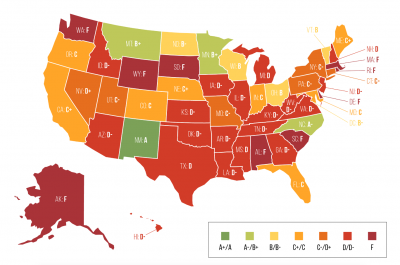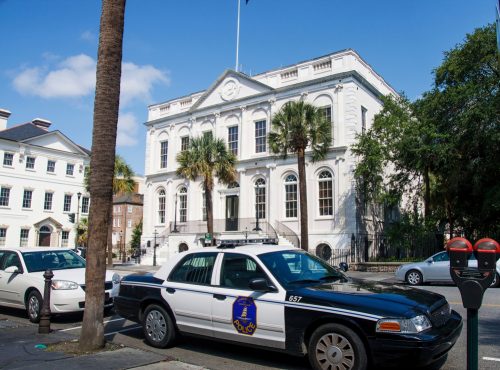South Carolina could become fourth state to abolish civil asset forfeiture
It is known by the obscure term “Civil Asset Forfeiture,” but its meaning is very clear: the police can take your stuff…and keep it, even if you’re not convicted of a crime.
Previously unfamiliar to the general public, South Carolina’s Civil Asset Forfeiture practices have come to light recently due to a series of investigative reports from The Greenville News. These reports tell how cash, cars, and even homes—totaling $17 million over three years—have been seized by South Carolina law enforcement. But here’s the issue: many of the individuals who were forced to forfeit their possessions were not charged with crimes when their property was confiscated.
Rep. Alan Clemmons (R-Horry), along with a majority of the members of the South Carolina House of Representatives, have proposed legislation that would require a criminal conviction before law enforcement can force an individual to forfeit his or her property. If Clemmons’ bill (H.3968) is signed into law, South Carolina would join Nebraska, New Mexico, and North Carolina as states that have abolished civil forfeiture.
The Greenville News’ series also reveals that police confiscated property without a criminal conviction almost 40% of the time and only 20% of forfeiture cases resulted in criminal convictions. This data, when coupled with the fact that in only 6% of cases did individuals have their property returned by law enforcement, reveals the unfairness of our current system.
The Institute for Justice (IJ), a legal group that studies forfeiture cases across the country, reviewed South Carolina’s asset forfeiture laws in 2015 and gave the state a “D-” rating. They cited several data aspects of the South Carolina practice that brought them to their rating, the first being that law enforcement retains 95% of forfeiture funds, which they argue provides extra incentive for police officers to confiscate property. They also highlighted the low bar for forfeiture and the poor protections for third party property owners:
As in all states, law enforcement need only have probable cause to seize property. But to get seized property back in South Carolina, an owner must show that it is not forfeitable by a preponderance of the evidence. Innocent owners also bear the burden of proving that they did not consent to the illegal use of their property.
Another national group, FreedomWorks, gave South Carolina an “F” rating, one of only 9 “F”’s given out in their grading of the states. You can see FreedomWorks’ grading map of the 50 states below.

IJ also found that between 2000 and 2013, South Carolina agencies received over $56 million in equitable sharing proceeds, a loophole in the current law that allows state law enforcement to circumvent difficult state laws by taking property under federal law. (South Carolina received more than $18 million from the U.S. Treasury Department under this same arrangement.)
The bill currently before the SC legislature would address the issues above in several ways. It would:
- Abolish the civil forfeiture system and replace it with criminal forfeiture.
- Remove law enforcement incentive to seize property by diverting funds away from law enforcement and to the state general fund.
- Grant the individual presumption of innocence, by putting the burden of proof of crime back on the state.
- Close the equitable sharing loophole by preventing law enforcement from transferring seized property to the federal government (unless it was valued at more than $50,000).
The legislation was recently amended following push-back from the Greenville police chief who argued that the bill would take funding away from police and would make it more difficult for them to do their jobs. The amendment would eliminate smaller forfeitures (less than $1,500 cash or a vehicle valued less than $2,500) but would allow police to seize money considered “abandoned” and wouldn’t prevent state law enforcement from working with federal task forces on forfeiture cases. Legislators said they will continue to work with law enforcement as this bill progresses.
Rep. Jason Elliot, a co-sponsor of H.3968, explained the importance of this legislation as it relates to respect for law enforcement:
Part of supporting law enforcement is creating an environment where law enforcement is respected and that actions of law enforcement are not called into question by the people of South Carolina.
Some 80 representatives (of 124) have already signed onto Rep. Clemmons’s proposal in an encouraging bipartisan effort. The bill has the support of both the American Legislative Exchange Council (ALEC) and the National Black Caucus of State Legislators.
South Carolina has an opportunity to lead the nation in criminal justice reform by passing H.3968 and restoring fairness and due process to South Carolina’s asset forfeiture practices. It is time.





